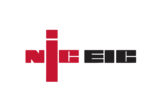
Brett Smyth, General Manager of Ideal Industries EMEA, discusses the need for consistent and compliant data network terminations in smart buildings, and how they can be achieved.
Introducing smart technology tailored to meet a building’s occupancy patterns and the tenant’s commercial requirements is a proven strategy for reducing energy consumption and avoiding energy waste.
We’ve come a long way since the days of basic timers and PIR sensor lighting control systems, with smart building networks that are both flexible and programmable to ensure they can be adapted to changing needs.
With increasingly sophisticated smart building systems, however, comes a requirement for complex data networks, and installing those networks requires a large number of terminations.
Each termination requires attention to detail to ensure a robust and compliant connection. In a multi-storey office block, any smart building installation or retrofit project is likely to involve multiple operatives carrying out the terminations and consistency can be compromised by individuals working with varying standards of quality.
Time pressures can also jeopardise quality and consistency, with tight programmes causing terminations to be rushed, reducing consistency as a consequence.
When consistency and compliance are compromised, identifying the terminations on the system that need to be rectified can be an onerous and time-consuming task. The answer, therefore, is to ensure terminations are carried out in a way that guarantees best practice and consistency, regardless of the number of operatives and time pressures on site.
Installation issues
Data networks require field-termination of CAT5e, CAT6 of CAT6A cables using RJ45 modular plugs. The more complex the network, the greater the number of RJ45 assemblies and terminations required.
Conventional installation methods require conductors to be trimmed to an exact length before the plug is placed onto the cable. If the conductors are too short, circuits will remain open, but this won’t be evident until the system is tested. Finding the issues on the network at this point can be a needle-in-a-haystack exercise.
If the conductors are too long, meanwhile, there is a risk that the pairs could be left exposed outside of the plug body or cable jacket. This not only looks sloppy, but could also hinder performance on the network. In this scenario, the conductors can also move out of place; an issue that is likely to remain unnoticed until the cables are tested.
To overcome both of these potential data network termination issues, contractors need to adopt a technique that will offer complete consistency for every termination, regardless of the number of installation operatives involved, without increasing the time needed to complete the work.
It was these requirements that led to the development of IDEAL Industries’ FT-45 Feed-Thru modular plugs and crimp tool.
Speed, simplicity and consistency
Designed to completely re-think the traditional RJ45 assembly and crimping process, IDEAL Industries’ FT-45 solution allows installers of smart networks to speed up and simplify the termination of RJ45 plugs by eliminating the need to trim conductors to a precise length before inserting the cable into the plug.
The Feed-Thru Modular Plugs are single-piece connectors, so there’s no need for installers to assemble a three-piece connector, even when working with CAT6 cable. This makes terminations faster, simpler and more consistent, whether using CAT5e, CAT6 of CAT6A cables.
Conductor wires don’t need to be accurately trimmed to a specific length; instead, installers simply need to remove an appropriate section of jacket, remove the centre spline (if present), untwist the pairs into the right order, and trim the ends flat. The cable can then be slid into the connector until seated.
The unit has been designed with open ends that allow conductors to be completely fed through the connector before crimping. The cable can be pushed into the connector to ensure the twisted pairs are as close to the pin contacts as possible, and that the jacket is seated beyond the primary strain relief for a secure connection.
Thanks to the clear connector design, the installer can then visually inspect and verify the correct wiring order, ensuring greater accuracy and fewer errors during the installation process.
Once the wires have been fed through, the installer can pull the cable into the plug, allowing the twists to be pulled to the front of the connector. This provides better radio-frequency performance and minimal untwisting.
The versatile FT-45 Crimp Tool, designed to be used with the IDEAL Industries FT-45 Modular Plugs, further enhances the right-first-time consistency of this approach.
With a single crimp cavity for RJ-45/8-position connectors, it is capable of crimping Ideal Feed-Thru standard, shielded, and unshielded connectors for CAT5e, CAT6 and CAT6A cables. The installer simply squeezes the handle to the closed position to cleanly shear the excess conductor wires and leave a smooth, flat finish – crimping and cutting the cable in a single action.
Progressive approach
To make it easier for installers to switch from conventional RJ45 connections to the FT-45 system, IDEAL Industries has introduced two new FT-45 kits. The kits include the FT-45 modular crimp tool, the IDEAL PrepPro cable stripper and the IDEAL Data T-cutter, along with a choice of either 50 unshielded connectors or 25 unshielded and 25 shielded connectors.
The speed, simplicity and consistency the system offers makes FT-45 a popular choice for installers, linking a progressive approach to installation with the smart technology that is helping to reduce energy consumption in our built environment.
View a product flyer for the IDEAL FT-45 kit by clicking here









